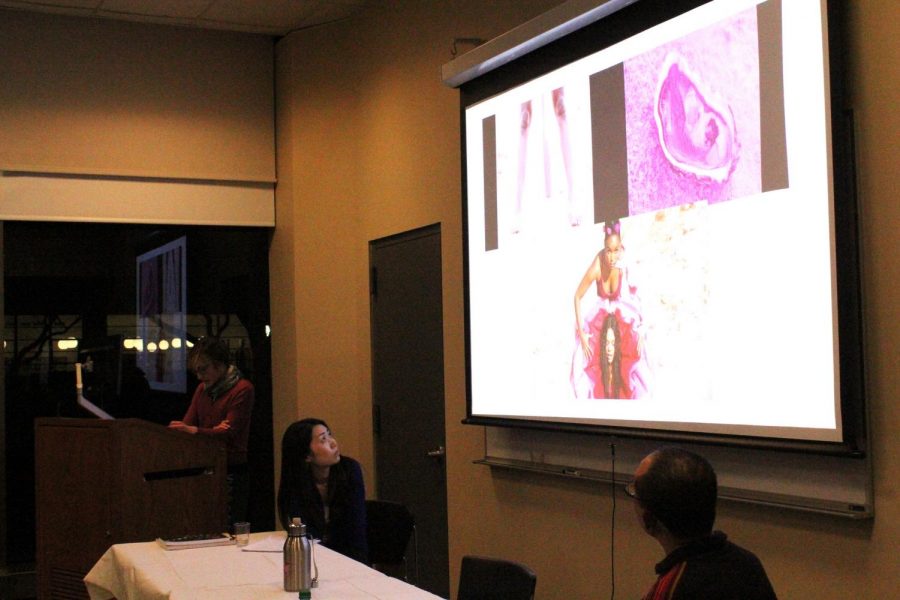WGSS Celebrates International Women’s Day with Research Roundtable
NAZLI ARDITI/THE OBSERVER
The panel at WGSS’s International Women’s Day event analyzed the visuals for Janelle Monáe’s feminist anthem, “PYNK.”
March 16, 2019
The department of Women’s Gender and Sexuality Studies celebrated International Women’s Day by using research to open a dialogue where no gender was left out and no limited definition of woman went unquestioned. The event was held a research roundtable on Friday, March 8th in the South Lounge of the Lowenstein building.
Zein Murib, assistant professor of political science, organized the event to “draw attention to research in feminist and gender studies and show it to the students so they can see how what they’re learning in the classroom applies in the outside world.”
Each professor that was nominated to contribute to this event gave a presentation on their recent or ongoing research, which included work on the effects of coming out, the societal implications of the term “cisgender” and how the transgender community in Toronto interacted with Japanese art.
Eric Chen, associate professor of counseling psychology at the Graduate School Of Education, described his experience interviewing bisexual and transgender adults for his research on how a person’s relationships are affected by their decision to disclose these elements of their identity. He found that bisexual men faced more stigma surrounding their sexuality than bisexual women, and that transgender students felt their experience of depression or loneliness would have been lessened in a more understanding schools and communities.
Chen got involved in the research roundtable as a way of “raising awareness so that other people would know the experience of transgender individuals.”
Diane Detournay, a professor of English and women’s, gender, and sexuality studies at Fordham, used visuals from the music video for Janelle Monae’s song “PYNK” and other popular art pieces to explain how African-American women were rendered genderless by practices like slavery and gynecological experiments paved the way for America’s current conception of the term cisgender.
The last speaker was Asato Ikeda, assistant professor of art history at Fordham, who introduced traditional Japanese art depicting “wakashu,” or male youth printed on blocks. Wakashu had same-sex relationships with older men including their mentors and other powerful figures in Japan before the country caved to the influence of Western gender roles.
Ikeda described how their relationships and distinct appearance makes members of today’s transgender community consider wakashu part of transgender and gay history. When curating the exhibit, she worked with Toronto’s transgender community to ensure that gender neutral bathrooms were available near the exhibit. She also made certain that wakashu were not given any pronouns that would be historically inaccurate or offensive to the community.
Ikeda expressed appreciation for her students who attended the event. Detournay reflected on how “International Women’s Day can be thought of as having a limited definition of ‘woman,’ and there were interesting connections across the papers presented in regards to trans studies.” Each professor used examples like art and personal relationships to express their research questions about gender.













